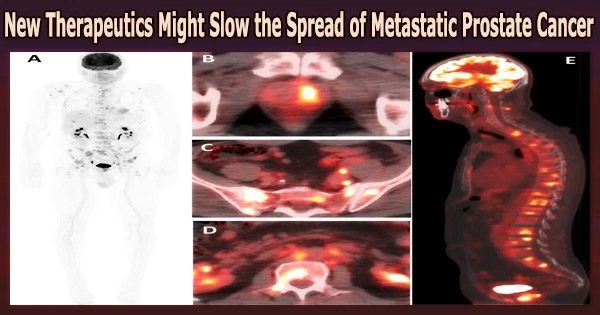Prostate cancer cells are abnormal cells that originate in the prostate gland and have the ability to grow and divide uncontrollably. The prostate gland is a small, walnut-shaped gland located in the male reproductive system that produces semen. New cyclin-dependent kinase 19 (CDK19) and related cyclin-dependent kinase 8 (CDK8) inhibitors have been revealed to inhibit the ability of prostate cancer cells to infiltrate and spread to nearby structures.
For patients with advanced disease, these compounds may be used singly or in conjunction with other therapies to stop and treat metastatic spread. The results appear in The American Journal of Pathology, published by Elsevier.
“There is an urgent need for novel therapeutic options for men suffering from advanced prostate cancer,” explained lead investigator Sven Perner, MD, PhD, Institute of Pathology, University Hospital Schleswig-Holstein; and Institute of Pathology, Leibniz Lung Center, Borstel, Germany.
“In previous research we found strong evidence for the involvement of CDK19 in the growth, progression, and metastasis of prostate cancer, as well as the development of castration resistance. Since several novel CDK8/CDK19 inhibitors have recently been developed, we tested them in a prostate cancer in vitro model and identified molecular changes in cancer cells after CDK8/CDK19-inhibition with these drugs.”
Based on previous findings and the results of this study, we have strong evidence that patients may benefit from treatment with CDK19 targeting agents with or without the combination of the commonly used antihormonal agents. Now, further studies are needed to prove the findings from our in vitro models.
Sven Perner
Castration resistance, which initially responded to androgen deprivation, is a sign of prostate cancer progression. The most dangerous type of prostate cancer, castration-resistant, has cancer cells that keep multiplying even when testosterone levels are at or below those required for castration.
The researchers proposed the hypothesis that CDK8/CDK19 contribute to castration resistance by influencing prostate cancer growth in an androgen-dependent manner. Treatment with just a CDK8/CDK19 inhibitor or with bicalutamide, a nonsteroidal androgen receptor antagonist commonly used in castration resistance, had only modest effects.
However, after prolonged treatment, the combination of CDK8/CDK19 inhibitors and antihormonal drugs significantly decreased the viability of the cancer cells. The phosphorylation of several signaling molecules, which are responsible for tumor growth and metastasis, is reduced when CDK19 is inhibited. These findings imply that dual therapy may be a promising means of overcoming the typically fatal resistance to anti-androgenic therapy.
CDK8/CDK19 plays an important role in gene transcription. Through phosphorylation of specific peptides, they are involved in immune-oncological processes and cancer-related signaling. Investigators studied three different prostate cancer cell lines after treatment with a CDK8/CDK19 inhibitor. They found numerous substrates were recurrently altered in more than one cell line.
These substrates were assigned to cell functions, providing evidence that CDK8/CDK19 affect the metastatic potential of prostate cancer cells through their kinase activity. These findings show which pathways are impacted by CDK8/CDK19 suppression and may be used as a tool for future research, despite the need for more research.
“There are only limited therapeutic options for the treatment of patients with metastatic and/or castration-resistant prostate cancer,” said Dr. Perner.
“Based on previous findings and the results of this study, we have strong evidence that patients may benefit from treatment with CDK19 targeting agents with or without the combination of the commonly used antihormonal agents. Now, further studies are needed to prove the findings from our in vitro models.”





